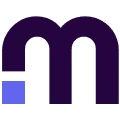
What is Sales Productivity
Sales Productivity refers to the measure of how efficiently sales representatives convert activities into revenue. It focuses on maximizing the output of sales efforts by optimizing processes, leveraging tools, and improving skills to drive consistent business growth.
Why Sales Productivity Matters in 2026
In 2026, the competitive B2B sales landscape demands not just more effort but smarter effort to boost revenue growth. Sales Productivity is critical because it directly impacts a company's top line by enabling sales teams to prioritize high-value activities, reduce wasted effort, and close deals faster. Enhanced sales productivity helps businesses scale efficiently, maintain customer satisfaction through timely responses, and leverage data-driven insights to continuously improve sales processes. Companies investing in sales productivity see measurable gains in revenue per rep, shortened sales cycles, and improved forecast accuracy, all essential in today’s fast-paced market.
How to Implement Sales Productivity: Key Steps
Improving sales productivity requires a strategic approach combining process optimization, technology adoption, and skill development. First, conduct a thorough analysis of current sales workflows to identify bottlenecks and time drains. Next, implement sales automation tools such as CRM systems and email sequencing platforms to reduce administrative tasks and enable reps to focus on selling. Third, invest in ongoing training to enhance reps’ selling techniques and product knowledge. Additionally, set clear KPIs like calls per day, conversion rates, and average deal size to measure productivity and adjust tactics accordingly. Finally, foster a culture of continuous improvement with regular performance reviews and data-driven coaching.
3 Real-World Examples of Sales Productivity in B2B
1. A SaaS company integrated an advanced CRM with automated task reminders and lead scoring, increasing rep productivity by 30%, which led to a 20% revenue uplift within six months.
2. An industrial equipment supplier implemented lean sales processes and targeted sales analytics, reducing sales cycle time by 25%, enabling reps to close deals faster and increase their client portfolio.
3. A professional services firm introduced weekly performance dashboards and personalized coaching sessions based on data insights, resulting in a 15% boost in successful proposal submissions and higher win rates.
See What’s Possible
From your first demo booked to your next ARR milestone, LGM powers predictable growth at every stage.

How can I measure sales productivity in my organization?
Measure sales productivity by tracking key performance indicators like conversion rates, sales cycle length, and revenue per rep alongside activity metrics such as calls made or meetings booked. Implement a CRM system to automatically collect data on both input activities and output results, ensuring you can identify where improvements are needed. Set benchmarks for your team based on historical performance and industry standards, then regularly review these metrics in team meetings. Focus on revenue-generating activities by calculating the ratio of selling time versus administrative work. For a comprehensive view, balance quantitative metrics with qualitative assessments like deal quality and customer satisfaction scores.
How does sales productivity differ from sales efficiency?
Sales productivity measures overall output and results (like revenue generated per rep), while sales efficiency focuses on the resource cost of achieving those results (such as CAC ratio or conversion rates). Productivity answers "how much are we selling?" while efficiency answers "how cost-effectively are we selling it?" For example, a team might have high productivity (generating significant revenue) but poor efficiency (spending too much to acquire each customer). B2B organizations need to balance both metrics—optimizing for maximum output while minimizing the resources required to achieve those results.
What are the most effective strategies for improving sales productivity?
To improve sales productivity, implement a structured sales process with clear stages and actions that guide reps through the most efficient path to closing deals. Leverage automation tools to eliminate manual tasks like data entry, allowing your team to focus more time on customer conversations rather than administrative work. Provide targeted coaching based on performance data to address specific skill gaps, which typically yields better results than generic training. Optimize your lead qualification criteria to ensure reps spend time on prospects most likely to convert, preventing wasted effort on low-probability opportunities. Align your sales and marketing teams around shared goals and ideal customer profiles to ensure reps receive higher-quality leads that match their expertise.




